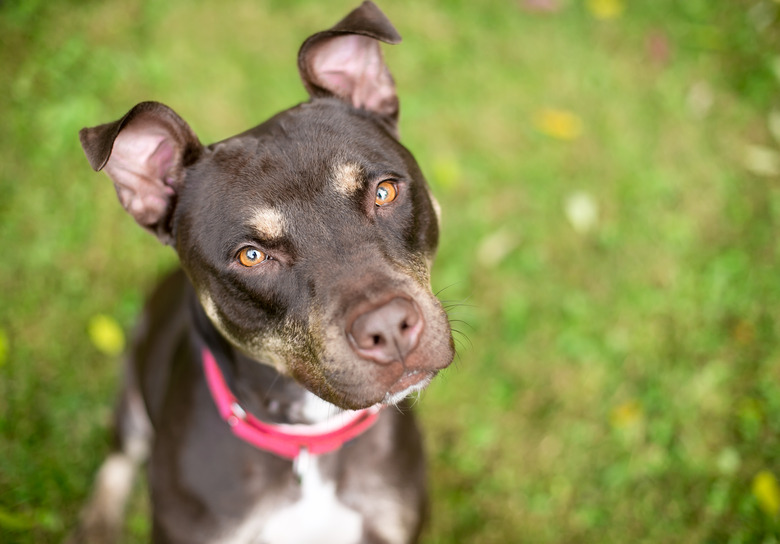Will A Dog Answer To Two Different Names?
If you're at all like many of the world's dog guardians, you likely have way more than just the "legal" name printed on his adoption certificate by which to call him. Often, dog owners will come up with a wide range of nicknames, pet names, second, third, and fourth names that they know their dog's by, each with its own backstory. But is your canine friend actually able to understand more than one name when you call him? The answer to that question will depend on a number of things, including the names you've chosen, how you say it, and how you train your dog to learn new words.
Dogs and spoken language
Dogs and spoken language
According to Psychology Today contributor and neuropsychological researcher Stanley Coren, the average dog is capable of recognizing around 165 words, with some "exceptional" canines reaching closer to 250.Your dog certainly can answer to two different names, but there are some things that can make it more likely that he'll remember them both and respond accordingly to either. Generally, the easiest types of names for dogs to remember are two-syllable names, which is likely due in part to the sing-songy delivery that is often naturally applied to these words. Saying a dog's name in a high pitch can also help dogs learn, according to VCA Hospitals, who add that learning is best done by using a combination of visual and verbal cues.
Getting a dog’s attention
Getting a dog's attention
Like any new, learned behavior, teaching your dog to respond to more than one name is definitely made easier when your canine is able to do two things — attach a positive association with it, and is offered an incentive to learn it. So, if you want to teach your dog to answer to two different names, or say you've just adopted a rescue dog and need to teach him his new name, offering a reward, like food or praise, after saying his name can help him form positive associations to the name, and can give him incentive to respond to it over time.
One thing you should avoid doing when teaching a dog his name is attaching other corrective commands to it, which can become confusing, especially if you use multiple terms to express the same idea (like off and down, when getting your dog off of furniture.) The American Kennel Club suggests that rather than saying phrases like "Rex, no," try only using the corrective command "no," and leave his given name to more positive situations, like praise, play, and affection. This is especially helpful for dogs who have been adopted and have been given a new name to learn.
Why isn't my dog answering to their name?
Why isn't my dog answering to their name?
Sometimes, a dog won't answer to more than one name, and may even refuse to respond to their primary name, which could be due to a number of things. According to Vetstreet, one common reason why a dog won't respond to her name is because she simply hasn't been taught to. Teaching a dog any new thing, including her name, requires focus, consistency, and positive reinforcement. If you're using your dog's name to achieve other behaviors that change constantly, like "come here" or "get off the couch," your canine is likely just not sure what you want from her, and may interpret her name as mere nonsense, along with other, improperly taught terms.
Additionally, some dogs may not respond to different names because of physical issues. Adult dogs who are older may become hearing impaired, and may not even realize their name, or names, have been called. Canine cognitive dysfunction syndrome, which is not uncommon among geriatric dogs, can affect the learning and memory functions of a pet as well.
In conclusion
In conclusion
Dogs are certainly capable of understanding and answering to a new name, or even two different names used regularly. The efficacy will, of course, depend on the dog and the names used, but in most cases, if a dog is able to form a positive association with the name they will likely answer to it.


